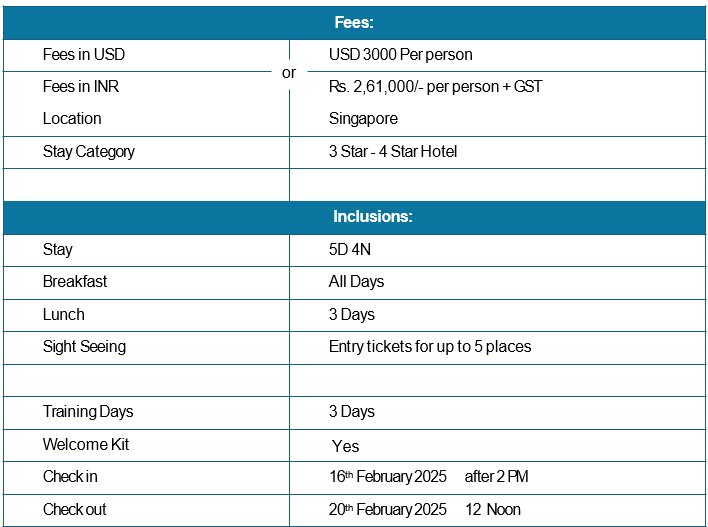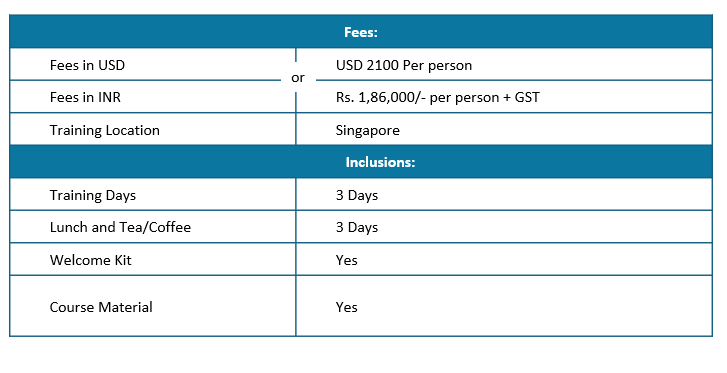The Cutting-Edge Leadership Development Program for Senior Executives, specifically designed to equip the leaders with tools to navigate the evolving challenges of leadership in a dynamic environment.As senior leaders with decades of experience, you face unique hurdles, from shifting mindsets and environmental uncertainties to adapting your approach in an era of rapid generational change.
Today’s younger generation is notably assertive, which makes the seniors uneasy about it coping with the attitude and generation gap.This Senior Leadership Program will address these issues head-on, empowering you with strategies to bridge the generation gap, strengthen your influencing skills, and refine your approach to mentorship.You’ll gain practical insights into understanding different personality types and developing adaptable communication techniques, ensuring you can effectively connect, lead, and inspire across all levels of your organization.
This journey is about evolving your thought process and mindset to stay relevant, impactful, and confident amidst today’s complexities.

Personality Assessment and Emotional Intelligence
Personality Test and Self-Reflection
- Conducting a detailed personality assessment tailored for senior leaders
- Personality traits that influence leadership style and decision-making.
- Personalized feedback and report to each individual participant
- Reflecting on strengths and areas for growth, particularly in influencing others and communicating
Emotional Intelligence (EI)
- EI and its components: Self-Awareness, Self-Regulation, Empathy, Social Skills, and Motivation.
- Managing emotions under pressure, handling conflicts, and improving decision-making.
- Self-awareness and self-regulation that impact a leader’s ability to influence others.
Communication & Handling Difficult Conversations
- Preparing for the Conversation
- Managing emotions, choosing the right setting
- Effective Communication Skills
- Using “I” statements, staying assertive but respectful
- Giving and Receiving Feedback
- Techniques for constructive criticism
- Addressing Biases Tools for Fostering Inclusivity
A personalised EI Development Plan for patience, self-control, and resilience

Influencing Skills and Strengthening Cross-Generational Communication
Persuasion & Influencing Skills
- The art of persuasion
- Building rapport and credibility
- Effective negotiation and conflict resolution
- Methods to build credibility and create compelling messages that resonate across generational divides.
- Techniques like storytelling, vision casting, and aligning interests for greater influence.
Bridging the Generation Gap in Communication
- Generational communication styles and preferences.
- Recognizing stereotypes and understanding the cultural context of younger generations.
- Techniques to adjust language, tone, and communication channels to foster respect and collaboration.
Advanced Communication Techniques for Influence
- Developing skills for clear, concise, and respectful communication.
- Exercises in active listening, non-verbal cues, and adapting communication styles.
- Addressing and overcoming common sources of generational disconnect.

Coaching & Mentoring
Assessing Others to Understand Their Personality
- Personality types (e.g., extrovert vs. introvert, detail-oriented vs. big-picture).
- Behavioral Cues: Communication style, body language, listening patterns, and reactions to feedback.
- Open-Ended Questioning: Open questions and active listening to uncover deeper personality traits.
- Situational Analysis: Present scenarios to understand their problem-solving and decision-making approach.
Coaching and Mentoring
- Building rapport, trust, and motivation.
- Establishing clear goals for coaching relationships, aligned with the mentee’s growth and development.
- Role-playing and simulations to practice Coaching & mentoring skills.
Coaching Techniques to Drive Performance and Growth
- Methods for setting performance goals, developing growth plans, and providing constructive feedback.
- Techniques for encouraging accountability and guiding mentees toward self-improvement.
- Using EI skills to manage difficult coaching conversations effectively.
Mentoring as a Legacy-Building Tool
- Leadership succession and knowledge transfer.
- Structuring mentoring to be meaningful, enriching, and aligned with mentees’ aspirations.
- Creating an action plan for long-term mentorship and guiding mentees through professional and personal challenges.

for Residential

for Non – Residential

COURSE SCHEDULE & FEES
DOWNLOAD COURSE CONTENTS
Please click the button below to download the course content. You'll need to provide your contact information to receive the document.
INCOMPANY/GROUP TRAINING REQUEST
Why Choose Our Incompany Program?
- 🎯 Tailored content specific to your business goals
- 👥 Train entire teams together, saving time and cost
- 📍 Delivered at your location or virtually
- 📅 Flexible scheduling to suit your timelines
- 📈 Increase retention and application of skills